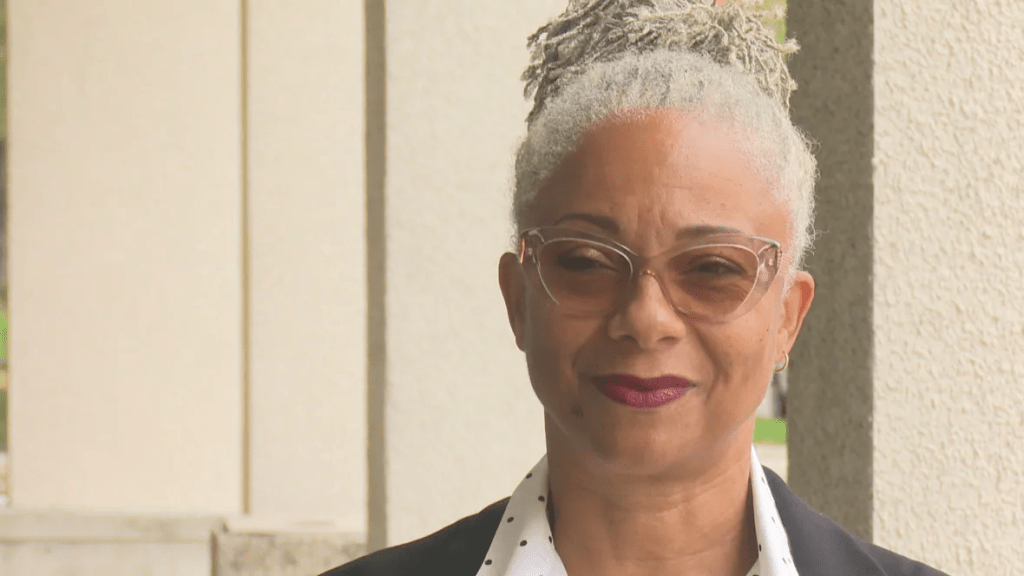Author: pbladmin
Conditions at Windsor-area jail are leading to reduced sentences
OPP in Leamington, Ont., racially profiled Black man facing drug offences, judge rules in acquitting him
A man arrested for drug offences was racially profiled by Ontario Provincial Police in Leamington, a Superior Court judge has ruled, deeming the evidence against him inadmissible as a result.
Justice Martha A. Cook acquitted the man on one of the charges after Crown prosecutors withdrew the second.
“This is not a close case,” Cook wrote in the decision released in December.
“The case law is consistent and clear … Anti-Black bias, whether implicit or otherwise, must be denounced as anathema to the rule of law and the integrity of our justice system.”
The case dates back to December 2020, when OPP officers Melodie Gratton and Mitchell Smithson tailed a black BMW for several minutes and followed it into the parking lot of a 7-Eleven, according to court documents.
CBC is not naming the driver because there are no outstanding charges against him.
Mental health advocates slam Windsor mayor’s support of involuntary treatment
Advocates and legal experts who deal with the mentally ill are expressing strong opposition to a suggestion by Windsor’s mayor that involuntary treatment is a way to address a burgeoning mental health and addiction crisis in Canadian cities.
“How do we have leadership that is engaging in an almost draconian mentality?” said Windsor criminal defence lawyer Patricia Brown, who specializes in mental health law.
“This was the law in the ’70s and the ’60s where people were apprehended and locked away in institutions, and it wasn’t working,” she told the Star. “The Charter of Rights and Freedoms is there because we deal with the fundamental freedoms of all members of society.
“Everyone has rights. These are still people.”
Overcrowding, lockdowns inside this Windsor-area jail are so persistent, it’s leading to reduced sentences
Overcrowding and frequent lockdowns due to short staffing: These are some of the conditions at the South West Detention Centre that led to a lighter sentence of a Windsor man charged with gun trafficking.
In March, Lawrence Davis was sentenced to seven years in jail after he was found guilty on gun-related charges. Davis was charged in December 2021 after he got into an argument with a man in a vehicle at a parking lot near Tecumseh Road East and Forest Glade Drive.
The heated argument turned into a gunfight — one man died, while Davis was shot in the shoulder and treated in hospital.
Without being able to prove whether Davis acted out of self-defence, first degree murder and attempted murder charges were dismissed.
But in the publicly available decision related to Davis’s probation breaches and gun-related charges, the judge says he considered the conditions the man faced during his pre-sentence custody at the South West Detention Centre (SWDC).
Those conditions included multiple lockdowns and sleeping three people to a two-person cell…
Ontario’s youth jails are overcrowded, 3 years after mass closings | Canada Tonight
Ontario youth detention centres at overcapacity, creating concerns as another is set to close
More than three years after shutting down roughly half of its youth detention centres, Ontario is seeing overcrowding at its remaining publicly run facilities.
In 2021, the province closed 26 centres.
Today, there are 20 privately run transfer payment centres and five public direct-operated facilities.
Last week, publicly run youth jails in Sudbury, Simcoe and Brampton were 100 per cent full or over capacity, according to CBC News sources. For June 6, on average, all five facilities averaged 101 per cent capacity. The other two, which were under capacity during the same time frame, are in Sault Ste. Marie and Thunder Bay.
The centres house youth charged or incarcerated in violent crimes like murder, armed robbery and burglary.
Michael Fallon, co-chair of Ontario’s Corrections Ministry employee relations committee (Corrections MERC), said he hasn’t seen numbers consistently this high since before the province closed the centres during the pandemic — a move he says was justified at the time.
“They’ve been coming back into custody for these serious crimes,” said Fallon, who’s with Local 290 of the Ontario Public Service Employees Union (OPSEU).
“We’ve filled up our beds — we’ve had to add more beds to our facilities and we haven’t added any facilities.”

According to Fallon, Ontario’s plan so far has been to open up more beds.
“They added a unit to existing facilities. However, they didn’t staff units with more staff. What they did was they added 13 beds at the Simcoe building, and they added 16 beds at the Brampton building, and they did not allow for any more staffing.”
Sudbury youth jail to close in 2025
As announced last year, Sudbury’s youth detention centre is set to close in the spring of 2025 and be revamped into a jail for adult females.
Staff are being offered jobs at the adult facility, but Fallon is unsure how the youth inmates will be dispersed across the system with overcrowding already proving to be an obstacle.
“They haven’t shared what their plan is with us.”
He said their staffing is already at “bare-bones minimum,” and some people are working anywhere from 12- to 16-hour shifts to meet demand.
“It’s creating a dangerous environment for both the staff and youth. The youth live there. They have to live there. It’s creating a lot of mental health issues and a lot of burnout with the staff.”
Fallon said because corrections jobs are considered essential, the pressure to work longer hours exists to ensure someone is present to ensure the building is safe and run properly.
“We can’t just open the doors and let them out.”
The Ministry of Children, Community and Social Services (MCCSS) said in a statement that it monitors the utilization of custody and detention systems to maintain “appropriate capacity” and respond to changing needs within the youth justice system.
As for the Cecil Facer Youth Centre (Sudbury) transition, the ministry’s communication team said it’s business as usual for the time being for as long as “routine operations are maintained.”
“This will allow MCCSS to carefully plan for transitioning youth when required, with the best interest, well-being and safety of the youth at the centre of all considerations,” the statement said. “It also allows MCCSS to meaningfully engage Indigenous, justice and community partners for advice on how we can support the transition of youth to other facilities when required.”
The Official Opposition critic for MCCSS said the stress on the system will be made much worse by the upcoming Sudbury closure, and she fears for the safety of the young inmates and staff working with them.

Monique Taylor, NDP MPP for the riding of Hamilton Mountain, calls it concerning.
“When we go overcapacity, we are already putting too much pressure on that system, on that facility, on those workers, which then in turn puts those young people in a precarious position, and that’s not OK.”
Taylor said more investment is needed for children’s futures.
“We’ve probably already failed them somewhere, and once they’re in trouble, we’re not even providing them the safe space, the proper bedding, the resources that they need to be able to succeed and to be able to rehabilitate to get their lives back on track.”
Stress on families
Windsor lawyer Patricia Brown represents a lot of young people in southwestern Ontario.
Brown said she’s not surprised some youth detention centres are overcapacity because she sees it consistently first hand.
The closest facility from Windsor, for example, is in Simcoe — a three-hour drive.
“We no longer have a facility where I can simply go down the street or meet the client — or their parents can come and see them locally,” she said.
Brown said she has clients who end up moving from one facility to another.
“The turnaround doesn’t allow them to continue to get settled, to get acclimated a bit, to get connected to counseling support and start to build a rapport with the staff.”

The distance some youth are moved to open beds can also exacerbate issues for families already dealing with language barriers, she said.
“They’re not familiar with the Canadian judicial system or criminal justice system. If they don’t have the financial means to get there to see their child, it can create a significant amount of stress and distress for the family — and they don’t really have system navigators.”
Ministers have to come together and look at what can we do, because if we lose those beds and we’re already in a state of overcrowding, what’s the alternative? Are you going to house them with adults? What are we doing next?– Patricia Brown, lawyer in Windsor, Ont.
When there’s a bail hearing, said Brown, and it’s taken place via video, the child would still be in that detention facility hours outside their hometown.
“The parents are expected to travel to that jurisdiction wherever the child is, to pick the child up and bring them back to their home. It’s financially a hardship for some families to have to do that.”
Brown believes the province will need to take steps to revisit the idea of closing facilities — keeping in mind the mental health of young people being incarcerated.
“I think that we have to pause. I think ministers have to come together and look at what can we do, because if we lose those beds and we’re already in a state of overcrowding, what’s the alternative? Are you going to house them with adults? What are we doing next?”

Brown said she’d like to see a facility back in southwestern Ontario.
“This particular program served our region very well. It was working very well. And I think we just need them to open beds back in this jurisdiction.”
Taylor said although she won’t lobby or advocate for more facilities, more thought needs to be put into where they are in relation to where people live and where the highest need is.
“We definitely, unfortunately, are seeing youth mental health on the rise. We’re seeing crime on the rise. We’re seeing all of these things on the rise.”
MCCSS staff say they recognize the importance of youth maintaining connection with their home communities — especially as it relates to reintegration following their release.
“However, given the relatively smaller size of the youth justice system, youth may not always be placed within their home community,” the ministry said in a statement.
“Across Ontario, MCCSS supports continued connections … which helps mitigate financial barriers to visitation, along with investments in video calling capabilities to allow youth to connect with family, guardians, elders and positive mentors.”
A positive step in the right direction
Windsor defense lawyer Patricia Brown says she hopes the U.S. appointing a Black woman to the Supreme Court will inspire young people, as well as the Canadian government.
Stranded far from home, robbery accused called police on himself
A Windsor man caught stranded outside a Sarnia coffee shop on a frigid January night saw Sarnia police officers pull into the parking lot.
But Cody Farrugia, who was out past his court-ordered curfew, didn’t run away or hide. Instead he confessed.
“I wasn’t caught or anything. I called them on myself because I knew I was in the wrong,” Farrugia said over Zoom from the Sarnia Jail to a city courtroom. “And I was cold, so I just wanted a place to be warm.”
Farrugia, 23, is facing charges in his hometown related to a convenience-store robbery, but was released on a recognizance as he awaits trial. It included a condition he stays home every night from 11 p.m. to 6 a.m. unless there is a medical emergency.
Farrugia came to Sarnia with some friends on Jan. 13, but wound up stranded more than 100 kilometers from home. Aside from being uncomfortably cold, there was no medical emergency and no legitimate reason for Farrugia to be outside his house when police found him at the Confederation Street Tim Hortons around 1 a.m. the next morning.
“He told the officers right away who he was and that he was out past his curfew, was hoping to see if they could help him get back to Windsor,” defense lawyer Patricia Brown said. “That didn’t happen. He was arrested instead.”
Farrugia has been in jail since.
“I shouldn’t have never left Windsor in the first place,” he said to Justice Anne McFadyen. “That was foolish of me to do.”
Farrugia, about to turn 24, pleaded guilty to one count of failing to comply with a release order. It was his first breach, but he did have an “unenviable” criminal record featuring three armed-robbery convictions from 2018 and spent a “significant” amount of time in jail, the court heard.
The then-20-year-old was initially facing six counts of robbery and six counts of wearing a mask or disguise with intent to commit an indictable offence linked to multiple knife-wielding incidents at convenience stores in Windsor’s east end.
As for the curfew coffee shop conviction, the Crown asked for 30 to 60 days in jail, less pre-sentence custody. Brown argued her client should be in a time-served position after getting credit for 27 days in pre-sentence custody.
“He should not have been in the circumstances that he was in. He’s certainly learned his lesson,” she said.
McFadyen said time-served was appropriate. He was ordered to be released from the Sarnia Jail unless there was a remand for his arrest in Windsor.
A Black woman on the U.S. Supreme Court would set ‘amazing example’ for Canada
More diversity needed in our judicial system, say Windsor lawyers
Nominating a Black woman to the U.S. Supreme Court would have positive impacts on this side of the border, according to advocates and Black women in the legal profession in Windsor.
“Having a Black woman on the Supreme Court in the United States of America would absolutely set an amazing example for a lot of women and a lot of young girls here in Canada,” said Gemma Grey-Hall, board member for Moving Black Women Forward, an advocacy group.
U.S. President Joe Biden is poised to nominate a Black woman to the highest court in the land, a promise he made during his campaign. She would replace outgoing Justice Stephen Breyer.
“I think it will have a great effect, I think it’s a positive step in the right direction,” said defence lawyer Patricia Brown.
Brown points to the retirements of justices Lloyd Dean and Micheline Rawlins, the only justices of colour to sit on the bench locally, as examples of a need to expedite moves toward more diversity.
“I think this particular moment in American history will definitely do something inspirational here in Canada and hopefully inspire not only just young men and women in our country, but also our government officials and members of Parliament that will recognize that this is a step that we should be moving in as well,” said Brown.

Lawyer Linda McCurdy agrees this would be a pivotal step in Black history — especially notable during Black History Month — but she said moves to make our courts more diverse should be happening regardless of what happens in the states.
“Judges here are appointed by the government, so we need to make sure that there’s people in the positions that make those decisions that understand that diversity is extremely important in our courts,” said McCurdy.
McCurdy said a more diverse Supreme Court in Canada is necessary to reflect the make up of the population of Canada.
Windsor defence lawyer Patricia Brown says she hopes the U.S. appointing a Black woman to the Supreme Court will inspire young people, as well as the Canadian government. 0:58
The Hon. Mahmud Jamal is a recent appointee to the Supreme Court of Canada and the first person of colour.
When Brown appeared before the Supreme Court in 2019 she found it “daunting” that no one who is a person of colour was on the bench.
“And I don’t think it’s lost on the members of the judiciary as well,” she said. “I do think that it’s something that the members of the bench have recognized to be an issue in our government and I think in our province our Attorney General is hopefully taking steps a more diverse bench,” said Brown.
“More needs to be done.”






